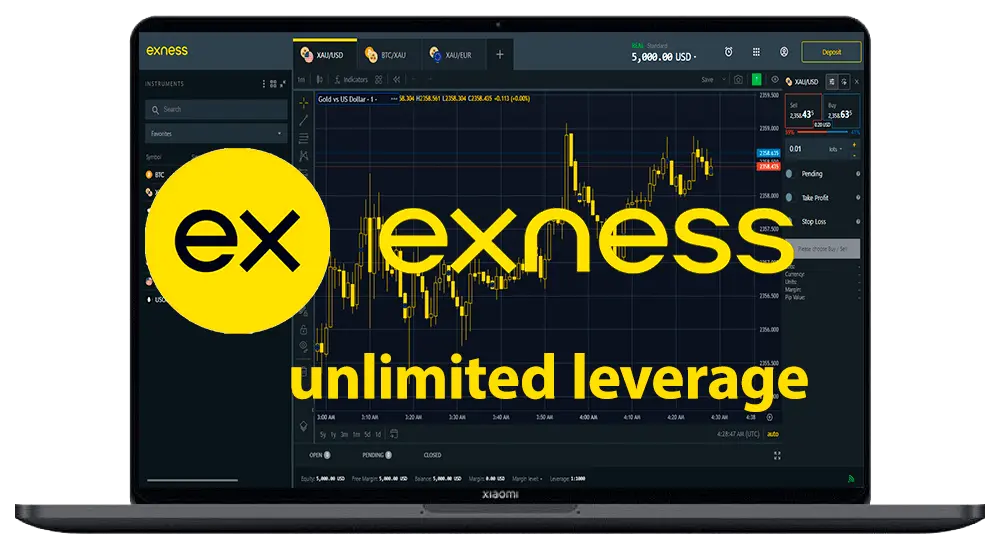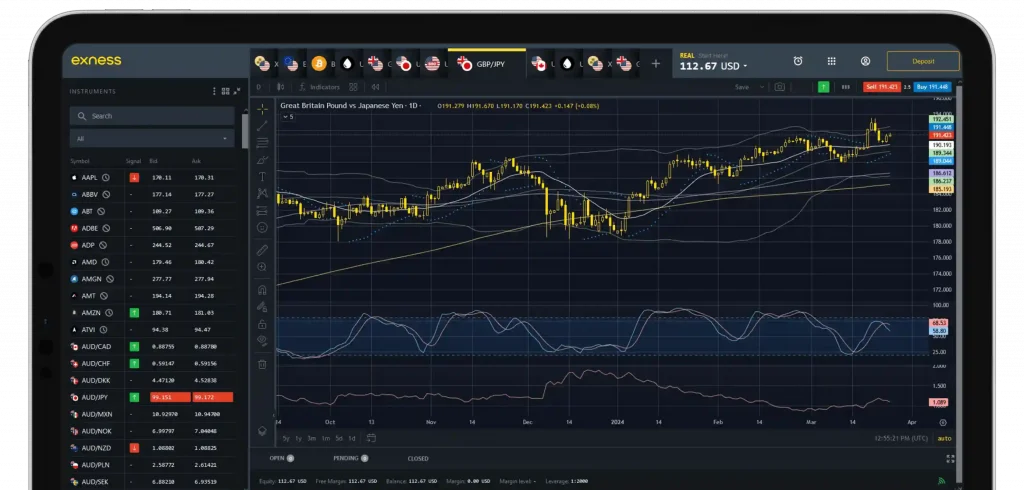Exness Unlimited Leverage
Home » Unlimited leverage
Understanding Leverage Trading
Exness provides Malaysian traders access to high leverage trading opportunities across various financial instruments. Leverage capabilities extend through different account types, enabling traders to control larger positions with smaller capital requirements. Trading with leverage requires understanding of both opportunities and associated risks.
The platform maintains flexible leverage settings adaptable to trading strategies and market conditions. Malaysian traders can adjust leverage levels according to their experience and risk management preferences. Account types determine maximum available leverage ratios and associated trading conditions.
Leverage Structure
Available leverage features:
- Adjustable ratios
- Market-specific limits
- Account-based allocation
- Risk management tools
- Position sizing options
Account Types and Leverage
| Account Type | Maximum Leverage | Minimum Deposit (MYR) |
| Standard | 1:2000 | 4 |
| Raw Spread | 1:unlimited | 840 |
| Zero | 1:unlimited | 840 |
| Pro | 1:unlimited | 840 |

Account Requirements
Necessary criteria include:
- Identity verification
- Risk acknowledgment
- Trading experience
- Financial capability
- Market knowledge
Leverage Risk Management
Risk management systems protect traders utilizing high leverage positions. Margin call procedures activate at predetermined levels protecting account equity. Stop-out protocols prevent excessive losses through automatic position closure.
Platform tools monitor leverage usage providing real-time risk assessment. Malaysian traders receive notifications regarding margin levels and position status. Protection mechanisms adapt to market volatility maintaining account stability.
Protection Mechanisms
Safety features include:
- Margin monitoring
- Position sizing tools
- Stop-loss requirements
- Equity protection
- Risk calculation systems
Market-Specific Leverage
Different financial instruments maintain specific leverage limitations. Forex pairs offer maximum leverage potential while other instruments have adjusted ratios. Market conditions influence available leverage during high volatility periods.
Instrument categories determine leverage availability based on liquidity and risk factors. Trading hours and market sessions affect leverage accessibility for specific instruments.
Instrument Categories
Leverage varies across:
- Major forex pairs
- Minor currency pairs
- Precious metals
- Stock indices
- Commodities
Position Calculation
| Leverage | Capital (MYR) | Max Position |
| 1:100 | 4,200 | 420,000 |
| 1:500 | 4,200 | 2,100,000 |
| 1:1000 | 4,200 | 4,200,000 |
Margin Requirements
Margin requirements vary based on selected leverage and instrument type. Free margin calculations determine available trading capacity for new positions. Required margin adjusts according to open position volume and market conditions.
Margin level monitoring ensures account stability during market fluctuations. Platform systems calculate real-time margin requirements providing continuous position assessment.
Margin Calculations
System monitors:
- Used margin
- Free margin
- Margin level
- Stop-out level
- Margin calls
Trading Platform Features
Trading platforms integrate leverage management tools supporting position control. Real-time monitoring systems track leverage usage across multiple positions. Platform features enable quick leverage adjustment responding to market conditions.
Technical tools support leverage-based trading strategies through advanced analysis capabilities. Position management features provide detailed oversight of leveraged trades.
Management Tools
Platform provides:
- Leverage calculator
- Risk assessment
- Position tracking
- Margin monitoring
- Order management

Regulatory Considerations
Malaysian regulatory framework influences leverage availability and trading conditions. Compliance requirements ensure responsible leverage provision protecting trader interests. Platform systems adapt to regulatory changes maintaining operational compliance.
Documentation requirements increase with higher leverage utilization. Account monitoring ensures adherence to regulatory standards and trading limits.
Market Analysis Tools
Analysis tools support informed leverage usage through market insight provision. Technical indicators assist with entry and exit timing for leveraged positions. Risk assessment features evaluate market conditions affecting leverage decisions.
Platform resources include educational materials explaining leverage implications. Market analysis capabilities support strategic leverage implementation across trading sessions.
Frequently Asked Questions
Account type, trading instrument, and market conditions determine maximum leverage availability. Regulatory requirements and risk management protocols also influence leverage limits.
Leverage multiplies both potential profits and losses proportionally. A 1:1000 leverage means both gains and losses are magnified 1000 times relative to invested capital.
Yes, leverage can be adjusted through account settings or support requests, subject to account type limitations and market conditions.

